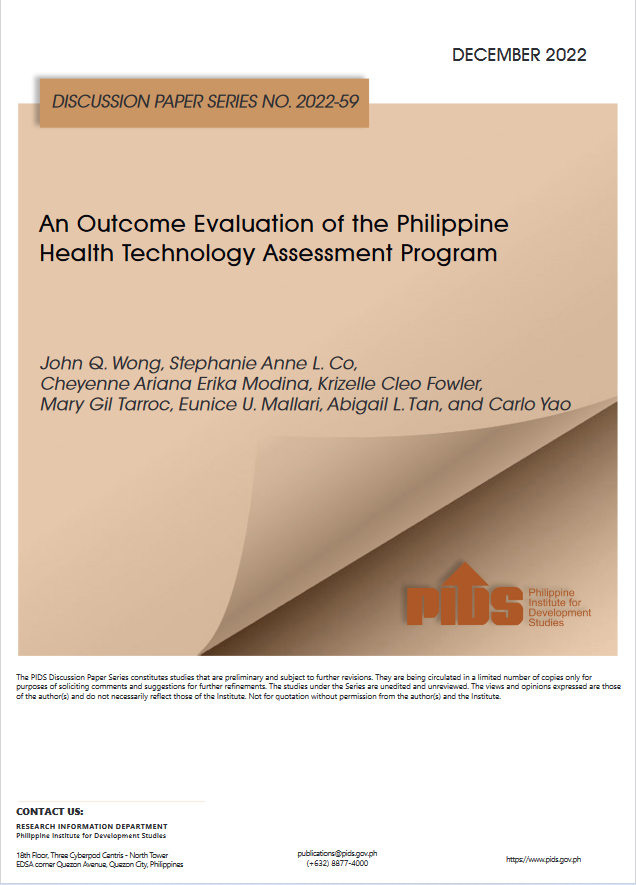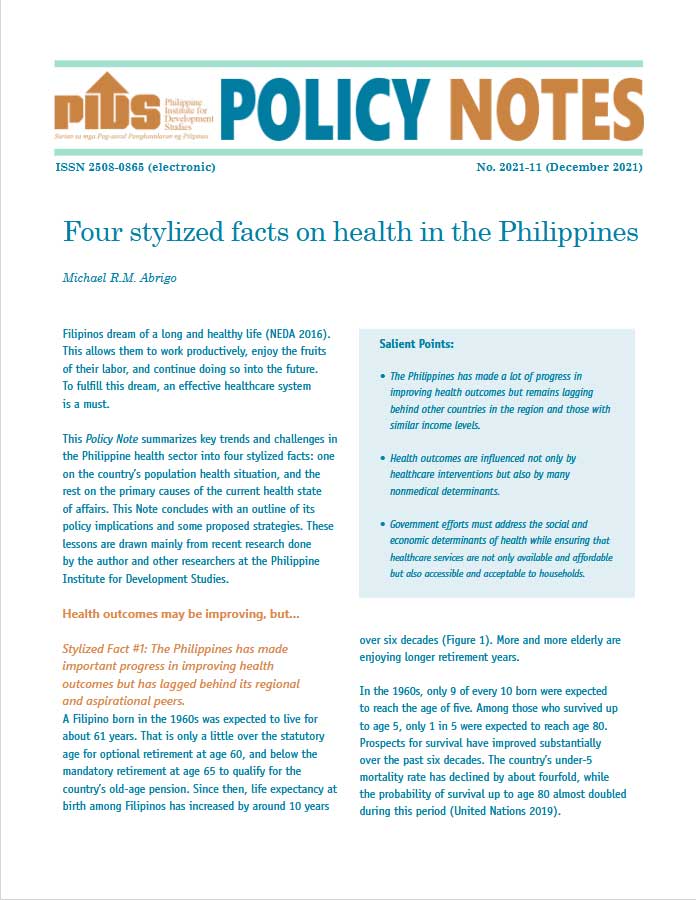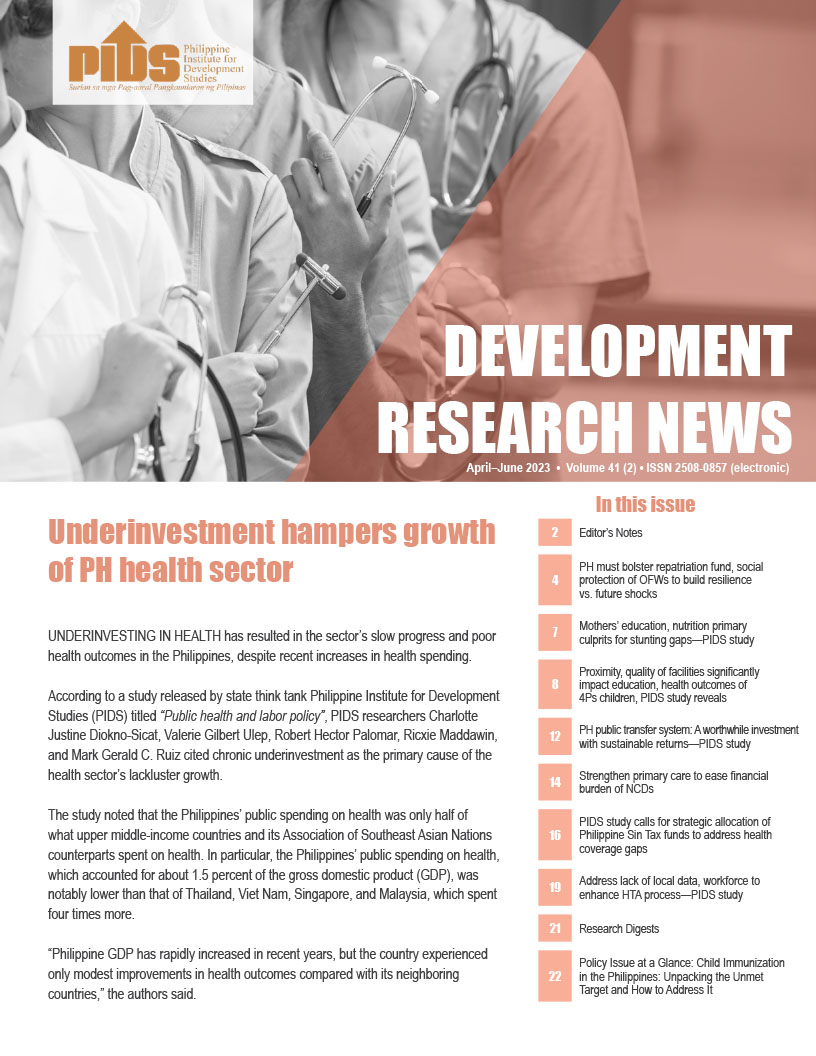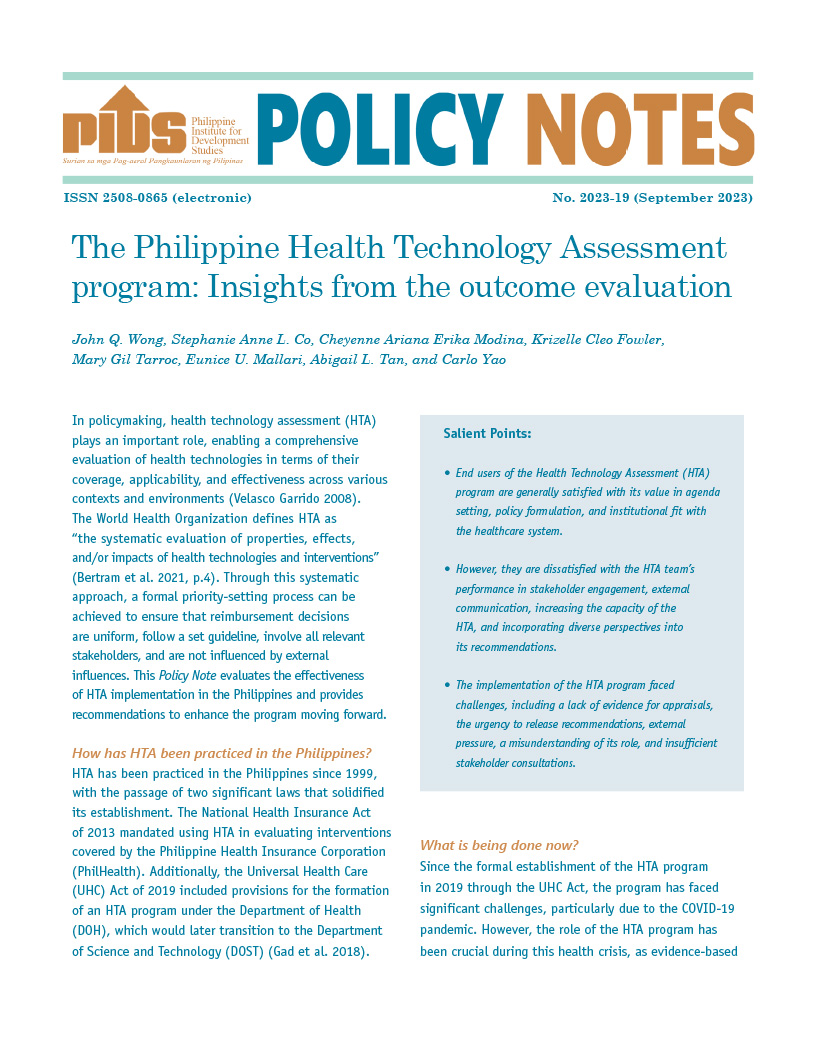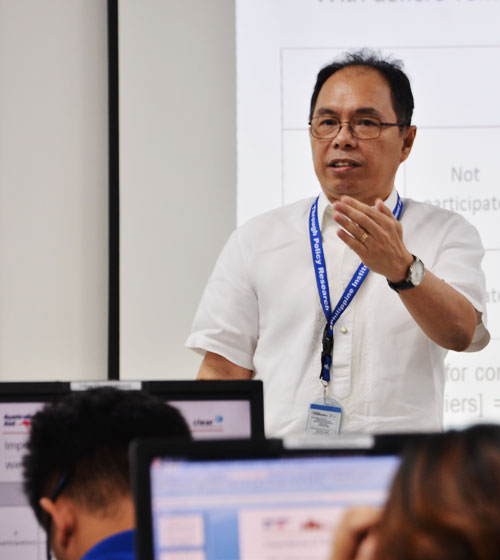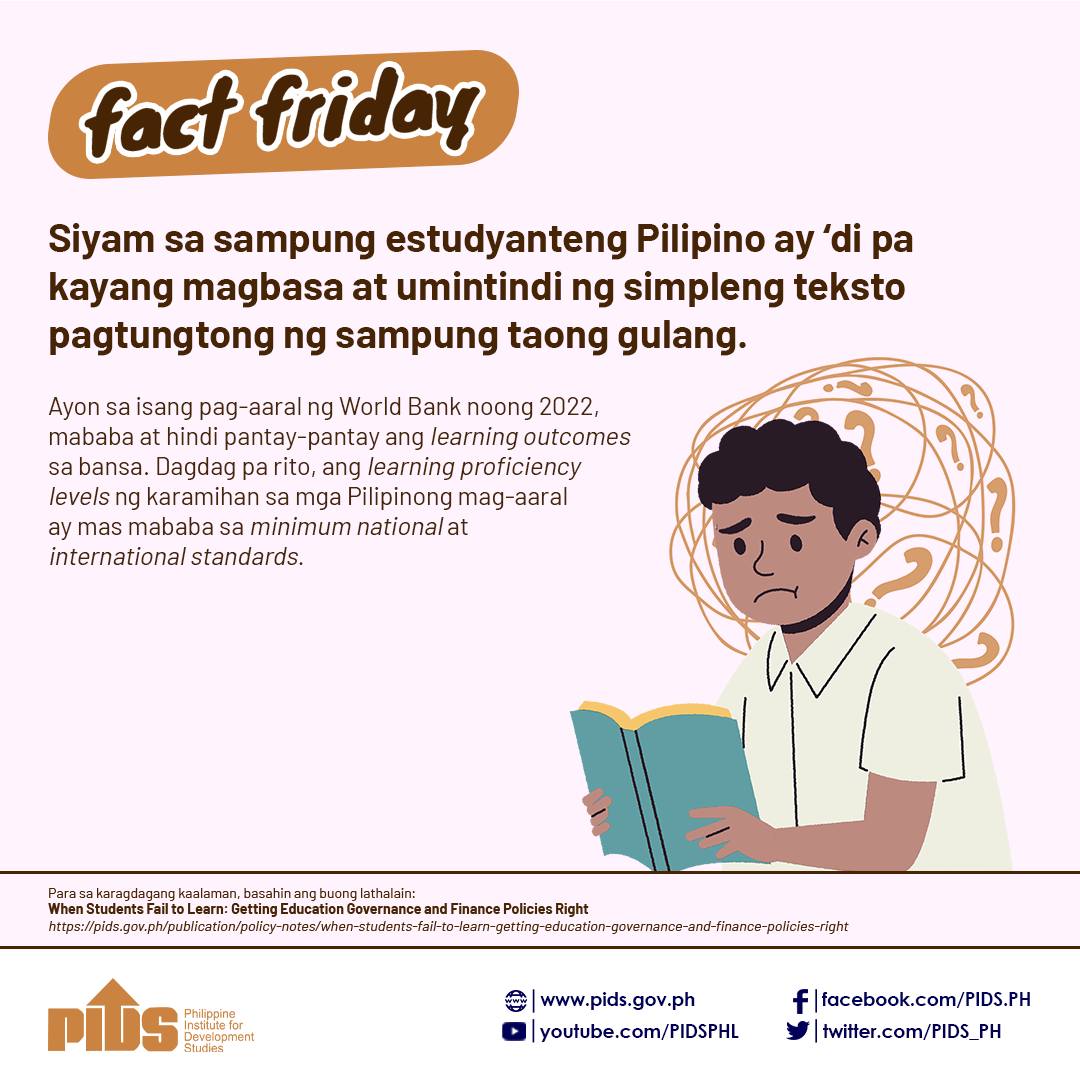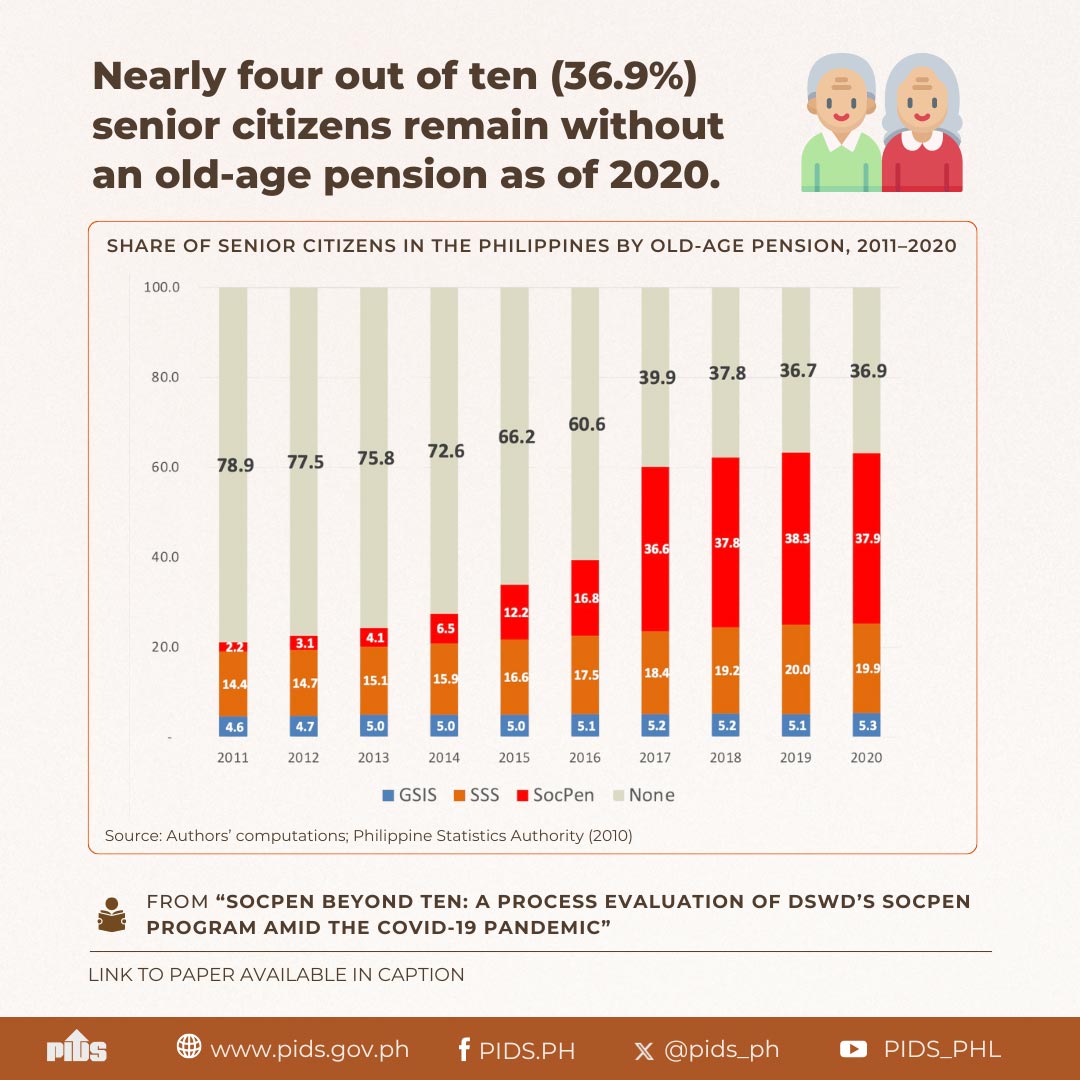The passage of the UHC law in 2019 mandated the creation of the Health Technology Assessment (HTA) Program to identify and recommend the most cost-effective health technologies for the Philippine government to procure. Since its inception, the HTA has mainly assessed COVID-19-related technologies. But with changing demands, current HTA processes must be evaluated for their relevance and usefulness post-pandemic and performance relative to international best practices. More importantly, there is a need to assess the far-reaching impacts of pricing and procurement on end users. Given these criteria, this study reviewed HTA policies and assessed end-user outcomes. Special attention was given to the utilization, assessment, and satisfaction with the processes, reports, and recommendations of the HTA by end users.
Multiple factors, including changes in leadership and the COVID-19 pandemic, have delayed the HTA roadmap. However, end users still utilize HTA assessments and recommendations in agenda setting, policy formulation, decisionmaking, and procurement. This was especially apparent for technologies related to COVID-19. But despite these achievements, much can be improved. The HTA must navigate through the challenges of inadequate local data. It must also consider adopting international best practices and adding human resources to increase assessment capacity and improve current processes. Finally, the program must transition to essential medicine and technologies for high-burden diseases and widen its scope, given its value to agencies involved in improving public health.
Comments to this paper are welcome within 60 days from the date of posting. Email publications@pids.gov.ph.

